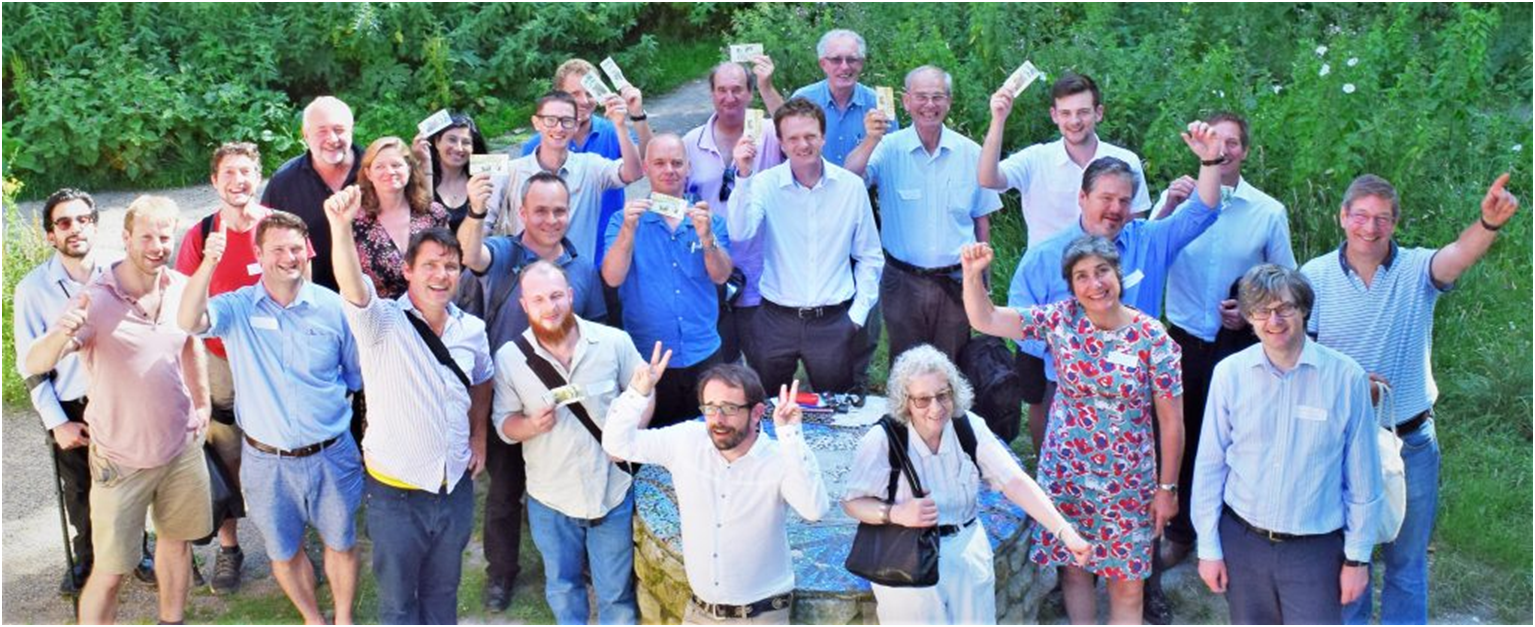By Dan Curtis, Energy Advisor at Bhesco
In Summer 2017, the people of Lewes celebrated the tenth anniversary of their local energy co-op Ovesco by honouring them on the latest Lewes Pound note.
Ovesco was born out of the Transition Town movement and has gone on to develop many high profile community energy projects in the area, including huge solar installations at Harveys Brewery, Brickyard Farm, and several schools and colleges.
Being commemorated on the Lewes Pound is a brilliant visual demonstration of the way that Ovesco keeps money within the local economy, and adds value to the community far beyond the energy systems they install.
Research on spending shows that for every £1 spent with a small or medium-sized business 63p stayed in the local economy, compared to 40p with a larger business.
In contrast to the Big Six energy companies (only two of which are UK owned), community energy groups are rooted in their localities and understand the concerns of residents and stakeholders. You would never find BHESCo or Ovesco, for example, embarking on a project that was opposed by local people, such is the case with fracking plans in Lancashire or oil pipelines in North Dakota.
By embracing the community, and employing local traders and installers to carry out projects, community energy groups are able to support local business and stimulate the local economy. Not only does this benefit domestic job creation, but it has a positive impact on business rates too.
Because community energy groups are owned by local residents, any profits made can be reinvested in developing more locally owned energy projects, instead of being paid out as interest to shareholders. It is also common for community energy groups to channel some of their revenue towards tackling fuel poverty and improving the energy efficiency of cold homes in the area. As well as benefiting individual households, this can also alleviate pressures on local health services as physical and mental wellbeing improve.
In fact, even generating and using energy locally has intrinsic advantages, because it cuts down on transmission losses and is a much more efficient use of the energy produced. In addition, creating a local supply network (such as residents of the Brooklyn Microgrid have recently achieved), insulates a community against external price increases and even possible power cuts.
In all of these ways, whether its creating jobs, reducing bills, or improving health, it is very clear that keeping it local has tremendous benefits for creating an independent and resilient community. When services and institutions are owned by and run by the people they serve, they will inevitably be responsible, democratic, and sustainable.
Our advice? Act local, join your community energy co-op ASAP.

 Latest addition of the Lewes Pounds celebrating Ovesco’s 10th Birthday
Latest addition of the Lewes Pounds celebrating Ovesco’s 10th Birthday